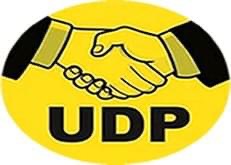Alagi Yorro Jallow.
 Fatoumatta: There is noise on the rounds on social media, particularly from the opposition United Democratic Party who wants to appeal the Supreme Court decision dismissing the UDP petition of December 3 presidential elections against president Adama Barrow’s election.
Fatoumatta: There is noise on the rounds on social media, particularly from the opposition United Democratic Party who wants to appeal the Supreme Court decision dismissing the UDP petition of December 3 presidential elections against president Adama Barrow’s election.
An appeal against the landmark judgment of the Supreme Court dismissed the UDP petition cannot be an appeal before any other court of law or to the ECOWAS court; instead, the UDP should file a motion for a judicial review of the petition before the same Supreme Court to review is Judgement pending the hearing and determination of the appeal (known as a review in the legal parlance).
The full bench (seven judges instead of five) of the Supreme Court has the jurisdiction to review its own decision. Section 127 of the 1997 Constitution gives the Supreme Court the power to review its case and determine. If the motion sought succeeds in the review case, the previous judgment will be set aside”.
Everyone has cause to disagree with some Supreme court decisions. Still, because the Justices are human, they can make mistakes. Nonetheless, that remains the law. An iprissama verba of Justice Chukwudifu Oputa, then called the Socrates of the Supreme court, appears to be a legal precedent in all Anglophone jurisprudence. “We are final not because we are infallible; rather, we are infallible because we are final.”
The Supreme Court of the Gambia is the highest in the land; a ruling was made. In a case between the United Democratic Party (UDP) (Applicant) and Adama Barrow(1st Respondent), IEC (2nd Respondent)and the (Attorney General). Tuesday, the Supreme Court judges delivered their judgment dismissed the UDP Petition to President.
Adama Barrow’s recent election victory ruling that the petition had not followed proper court procedures “that the UDP failed to comply with the requirement of Rule 11 of the Election Petition Rule, which required that you file a motion or petition and security,” Chief Justice Hassan B. Jallow wrote in the Judgement.
Fatoumatta: I am not a lawyer, but I know that the Supreme Court can only determine its appeals from the High Court. Once it decides on such appeals, that marks the end of litigation. It is clear from this ruling that the public policy principle that there must be an end to litigation always carries the day.
There is no other body where the case could be appealed after the Supreme Court, so it is for the best that only the Supreme Court has been given such power. However, it has to be noted that review is not substituting a judgment. A judgment cannot be unsettled when declared.
Fatoumatta: This is a fundamental principle. It is only reconsidering when the Supreme Court feels that something of grave nature has gone wrong in the judgment. Judgments cannot be taken lightly when they are declared.
It has to be understood that the power to review is only exercised in the rarest of rare cases. We cannot take our judiciary casually. Humans can indeed make mistakes, but we are not supposed to have only that in our minds. We have to believe that they are always right. We have to know that they are always right.
So, therefore, if in case anything ever goes wrong, it could only be something of a really patent wrong. However, if there is such a grave wrong, we know that we have a provision in our Constitution, which must be referred to.
Fatoumatta: Justice Chukwudifu Oputa was a Nigerian jurist who was Judge of the Supreme Court of Nigeria, also known as the Socrates of the Supreme Court, considered the powers of the Supreme Court (as the final Court in the land) to review its earlier decisions and said:
“We are final not because we are infallible; instead, we are infallible because we are final. Justices of this Court are human beings, capable of erring. It will undoubtedly be short-sighted arrogance not to accept this obvious truth. However, it is also true that this Court can do inestimable good through its wise decisions. Similarly, the Court can do incalculable harm through its mistakes.
Therefore, it appears to teach counsel that any decision of this Court has been given per incuriam; such counsel should have the boldness and courage to ask that such a decision be overruled.
The Supreme Court has the power to over-rule itself (and has done so in the past), for it gladly accepts that it is far better to admit an error than to persevere in error.

